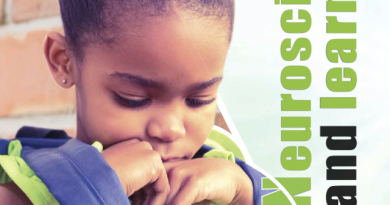FUTURE OF PARTY WINGS IN MALAWI
By Francis Botha
Politics and participation are fundamental to sustainable development. Political parties in Malawi have lived to address that yet their youth and women wings continue to face complex barriers towards their attainment of meaningful political participation. They are still dependent on their mother parties for resources.
The oldest party, the Malawi Congress Party (MCP) under late Hastings Kamuzu Banda formed the Youth and Women’s League. The advent of multiparty democracy, under Bakili Muluzi with United Democratic Party (UDF) founded both women and youth wings (Young Democrats) but without sustainable policy. Most of them later defected to the DPP.
Youth wings
A youth wing is an extension of a party that provides space to youths to participate in matters of the party. It counters declining youth membership and serves as political leadership nurseries. An ideal youth wing serves to influence policies and development activities.
One good example is the membership of South African politician, Julius Malema, who had been a member of the African National Congress Youth League (ANCYL) from the age of nine until his expulsion from the party in 2012 at the age of 31. Today Malema commands the voice of youths in South Africa and beyond.
Students’ wing
Students’ wings can promote politics of inclusiveness and tolerance. University students can help parties tackling critical education issues or advance change agenda. In 1993, scores of university students helped to unseat dictator, Kamuzu Banda, through mass protests. The expected voices of the students’ activism should be to push government to take positive steps to implement higher education policy with adequate resources.
However, the role of student supporters from regimes has been to detract public attention from pertinent issues. Students should watch against the toxic influence of political parties infiltrating their wings.
Women Wings
The under-representation of women at any level of governance and decision-making results in a democratic deficit. A women wing aims to promote women interests within the party structures without male hindrances. In some parties, all women automatically become members, while in others it is optional. Equal participation and representation should start at grassroots in order to give women recognition. Women should strive to lobby for quotas in their parties at different levels of governance. However, gender inequality and financial constraints make them fall prey to party loyalty.
Influence of CSOs and parties
Good governance starts with well-structured wings at grassroots level that receive support from other stakeholders. Parties must give wings political mandate to participate in the electoral processes and hold offices at all levels. The role parties ascribe to women and youths determines their political empowerment and engagement. The European Union Delegation to Malawi funds Young Women in Active Politics (YWAP) project aimed at grooming young women from the ages of 15 to 35 to actively participate in intraparty politics. Centre for Multiparty Democracy (CMD) and Women’s Legal Resources Centre (WOLREC) are some of the implementing partners.
A youth led NGO, Youth and Society (YAS) championed the youth manifesto towards the May 21, 2019 tripartite elections, which according to its Executive Director, Charles Kajoloweka, has positively influenced party policy directions. He believes government has positively responded to the manifesto by allocating at least K3 billion towards youth entrepreneurship.
“When young people get organised with clear policy demands and build energy around it, they get positive response from government,” says Kajoloweka.
Challenges faced by wings
Resources are the main constraints facing wings. Due to dependence on the mother party, they have little influence on party policy formation. Youths critical to agendas of the mother party are denied powers to influence policy for fear of alienating older voters. Successive regimes have used youths to unleash terror on innocent citizens. MCP Youth League and its paramilitary wing, the Malawi Young Pioneers (MYP), became the most dreaded agent of Kamuzu Banda’s brutality against everyone with dissenting views. They were disarmed in an operation called Operation Bwezani in December 1993.
Malawians hoped the operation was a significant catalyst for transition to democracy. However, UDF’s Young Democrats also became synonymous with terror. The current regime, the DPP youth wing, fondly called the ‘Cadets’ also unleashes terror against those exercising their freedom of speech. It is alleged that some have infiltrated the security organs to crackdown on their opponents.
People’s Party’s (PP) youth wing was out of power before it was fully-fledged, while the UTM party youths are becoming confrontational against aggression. Remarkable strides have been made in the current parliament of 22 percent female representation with DPP having the youngest parliamentarian; Fainess Magonjwa aged 24. This is record-breaking towards inclusive youth participation in decision-making positions.
Government, CSOs and international organisations seeking to advance the participation of women and youths should invest in grassroots politics or else wings shall remain tools for destruction.



